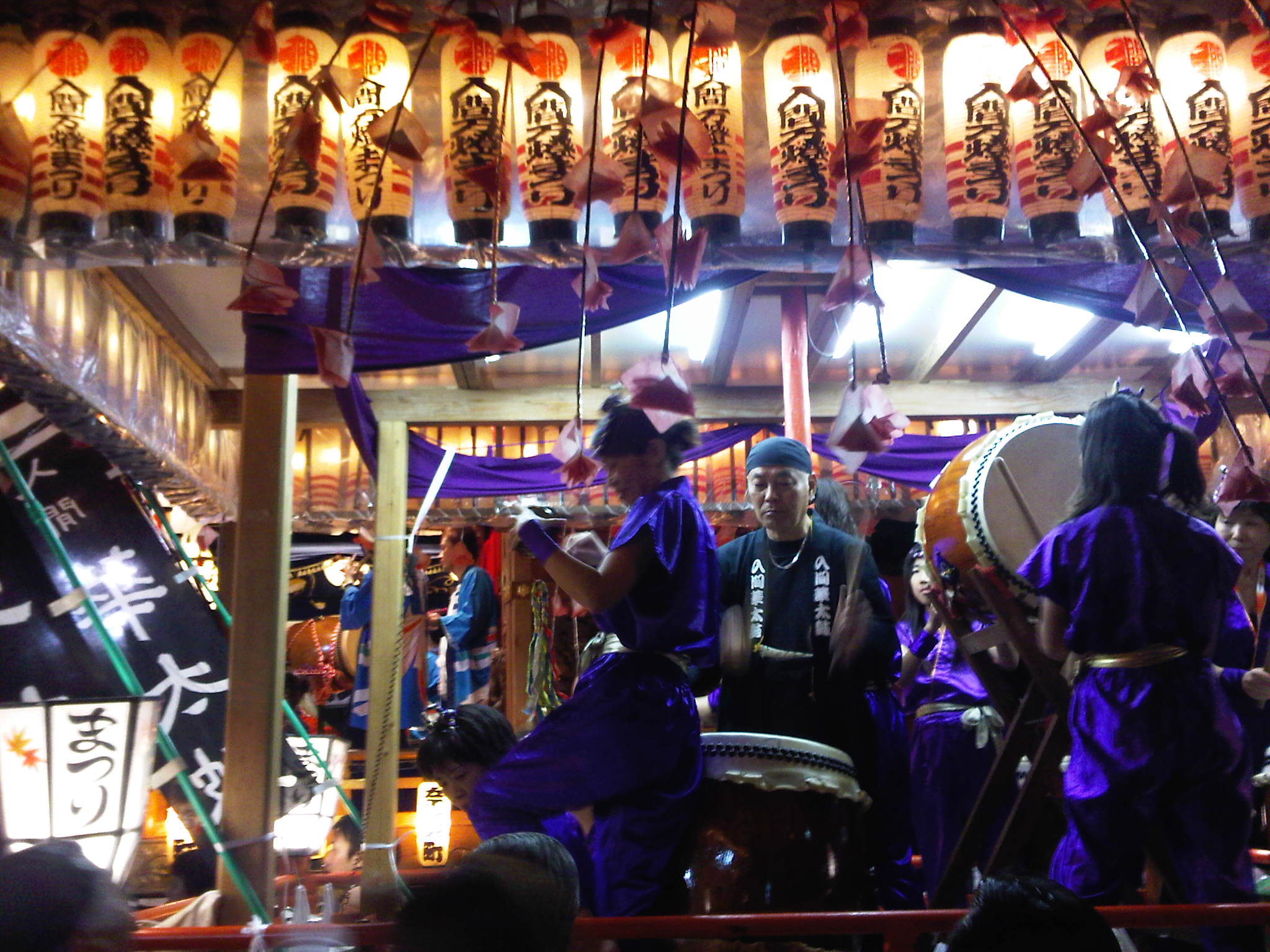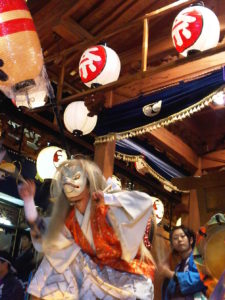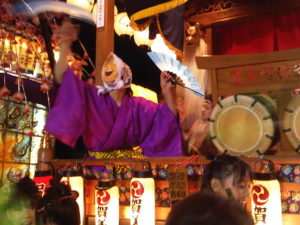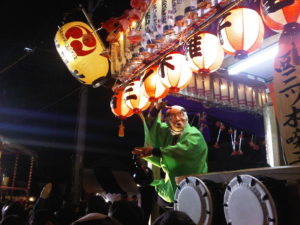
Women and a man playing festival music on Mikoshi
There are many festivals in Japan in the fall. This is politically good, says Yoichi Ito, an economist. Is it true?
To find out, I went to The Mandou Festival in Iruma in Saitama prefecture on October 27, 2012. The event started in 1966 to bring people in different areas in the city together and grew to be the largest festival in Iruma. When I arrived the festival that night, hundreds of people with friends and families had already been walking the streets, chatting, eating and drinking. Mandou means in Japanese “tens of thousands of lights”. Literally, people looked like that.

- The lion dance
A parade of mikoshis (portable shrines) started after a while. The streets were packed with people. There were lion dances performed on some mikoshis, dancing along to festival music (pictured above). The crowd gazed into them.
The crowd roared when the mayor, Hiroshi Kinoshita, appeared on a stage in the middle of the parade. He said loudly: “There are many festivals in Japan and the world but The Mandou Festival is competitive”. The crowd cheered. It was fun to see people chanting his name like during a football match.
There are two lessons. First, the festival is democratic. The mayor looked as if he was trying not to disturb people. That showed the political dynamics of festivals: The Mandou Festival is not the mayor’s but everyone’s. Because he understands that, he could become popular (only for a short time).

Hedonism? He doesn’t care
Second, festivals have a facility to remove dissatisfaction with politics. People break the routine to have fun. This hedonic view of festivals is hardly new. But to take steam out of people matters today. Mr Ito found that Japan has much more festivals than any other countries in North East Asia.
Shoguns in the Edo era were wise to allow people to cut loose during festivals; this is one reason why the Edo government could run for 200 hundred years in which the economy grew sustainably with a free-market system. Look at China, where anti-Japanese protests have recently been broken out and attacked Japanese shops. True, Chinese people are really angry with Japan’s plan to buy the disputed islands and what it did to them during the war. But if they had more festivals, they would have behaved differently. So, Japanese culture has lots to offer.

Comedy?

Ryo Kubota is a staff writer at Transpheric Management in Tokyo as well as a freelance writer. He has covered Sports for the Nippon Newspaper Company in Tokyo and teaches at a private tutoring school in Iruma, Japan. Having studied in both Tokyo and England in the areas of sociology, he has a keen interest in the world at large.








